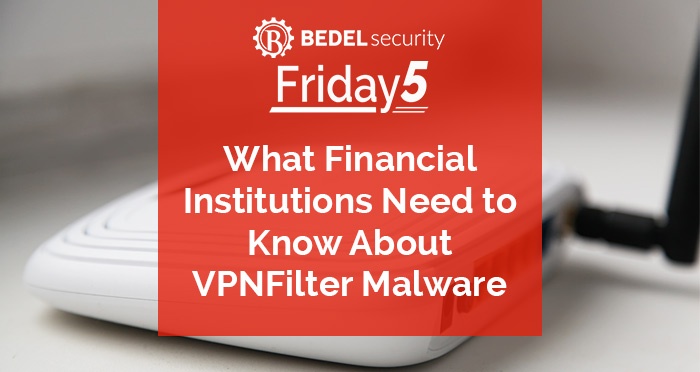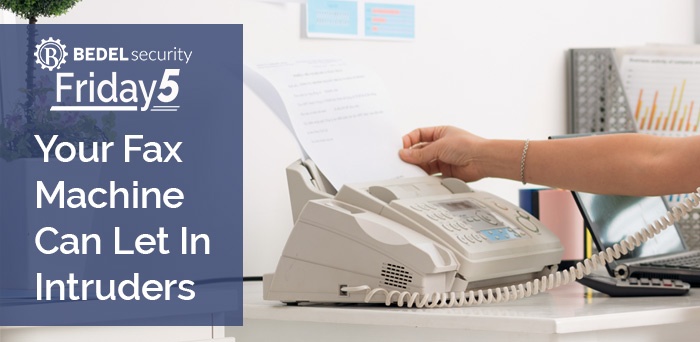What you need to know about Petya / Not Petya Malware
You've probably heard about the the latest outbreak of the 'Petya' ransomware. Like WannaCry, this is a worm-enabled ransomware, so it can spread...
2 min read
Brian Petzold : Jun 1, 2018


On May 23rd, the United States Computer Emergency Readiness Team (US-CERT) issued an alert about malware that has been discovered on over 500,000 Internet routers used in homes and small offices. The malware, named VPNFilter, is notable because the initial part of the malware is designed to be persistent and able to survive a reboot (and in some cases a factory reset) of the router.
The ultimate purpose of the malware is not known, but some aspects of VPNFilter should be of concern to financial institutions, as they can impact customers and remote employees. This week, the Friday 5 looks at five things financial institutions should know and do about the VPNFilter malware.
Bedel Security regularly analyzes new threats, focusing specifically on how they impact financial institutions. To learn more about the services offered by Bedel Security email us at support@bedelsecurity.com!
You've probably heard about the the latest outbreak of the 'Petya' ransomware. Like WannaCry, this is a worm-enabled ransomware, so it can spread...

Researchers at Check Point recently announced that they found a way to access a network by sending a fax. The vulnerability has been named...